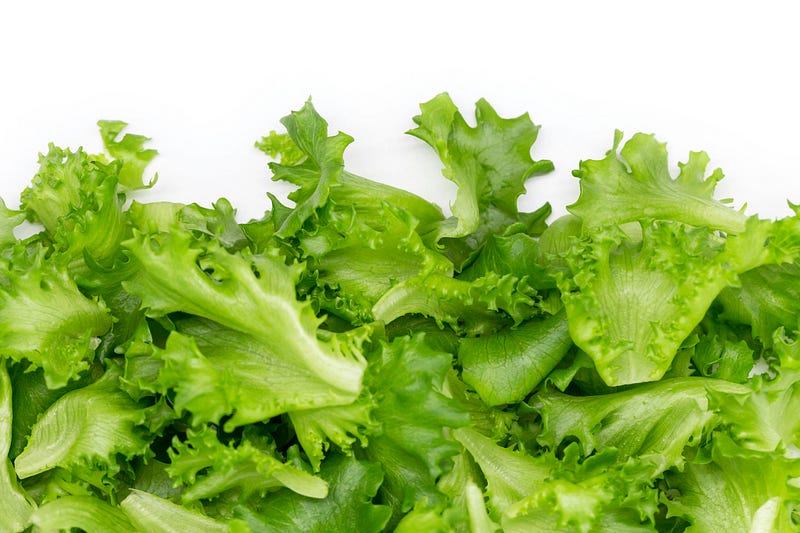A friend struggles with Irritable Bowel Syndrome (IBS). A new study offers a glimmer of hope. The research suggests that specific dietary approaches might be more effective than medication for symptoms. Today, we explore an IBS breakthrough (and it’s not a new medicine).
Irritable Bowel Syndrome, often called IBS, is a chronic condition affecting the large intestine (colon).
The condition causes uncomfortable symptoms in the gut but doesn’t damage the tissues.
What is A Low-FODMAP diet?
A low FODMAP diet is a specific diet designed to manage symptoms in people with Irritable Bowel Syndrome (IBS).
FODMAP stands for Fermentable Oligosaccharides, Disaccharides, Monosaccharides, And Polyols.

These are all short-chain carbohydrates that some people with IBS have difficulty digesting.
When these undigested carbohydrates reach the large intestine, gut bacteria can ferment them, leading to gas, bloating, diarrhea, and other IBS symptoms.
Low-FODMAP Diet In Detail
Here’s a breakdown of FODMAP types:
- Fermentable Oligosaccharides include fructans (in wheat, garlic, and onions) and galactooligosaccharides (in beans and lentils).
- Disaccharides: This category primarily focuses on lactose, the sugar in milk and dairy products.
- Monosaccharides include fructose, which is in fruits, and some sweeteners. However, fructose is only restricted to high-FODMAP fruits on a low-FODMAP diet.
- Polyols: These are sugar alcohols, including sorbitol (in artificial sweeteners and some fruits) and mannitol (in some fruits and vegetables).

By following a low-FODMAP diet, you aim to eliminate or significantly reduce these short-chain carbohydrates in your meals.
This approach can reduce the fermentation process in your gut and alleviate IBS symptoms.
Let’s look at a recent study examining the potential role of diet.
A New Study – IBS Breakthrough
The University of Gothenburg (Sweden) study compared two dietary interventions with standard IBS medication:
- Low-carbohydrate diet: This approach restricts carbohydrates, potentially reducing gut inflammation and discomfort.
- A low-FODMAP diet eliminates foods high in fermentable oligosaccharides, disaccharides, monosaccharides, and polyols (FODMAPs), which can trigger IBS symptoms in some individuals.
Study Results – IBS Breakthrough
Researchers combined both diets with existing IBS dietary recommendations.
The surprising finding?
At the four-week mark, these dietary interventions showed greater effectiveness in managing symptoms than medication.
Dietary Approaches Show Promise
The study compared the effectiveness of three interventions for managing IBS symptoms:
- Low-FODMAP diet + traditional IBS advice: This combined approach led to the most significant improvement, with 76 percent of participants experiencing reduced symptoms.
- Low-carbohydrate, high-protein/fat diet: This approach yielded a 71 percent improvement in symptom reduction.
- Medication: The medication group saw a 58 percent improvement in symptoms.
Positive Impact on Quality of Life
Interestingly, all three groups reported significantly improving their overall quality of life. QOL improvements included:
- Reduced physical symptoms associated with IBS
- Lower levels of anxiety and depression
These findings suggest that both dietary approaches might be effective first-line treatments for managing IBS symptoms and improving overall well-being.
All groups reported significantly better quality of life, fewer physical symptoms, and fewer symptoms of anxiety and depression.

This research suggests that specific diets might be a viable first-line treatment option for IBS.
Key Points
Here are some key points to remember about a low-FODMAP diet:
- It’s an elimination diet: Initially, you’ll need to eliminate high-FODMAP foods for a period (typically 6 to 8 weeks).
- Reintroduction phase: After the elimination phase, you’ll gradually reintroduce FODMAP-containing foods one at a time to identify which ones trigger your symptoms.
- Individualized approach: What triggers symptoms can vary from person to person, so a personalized approach is crucial.
- Guidance is recommended: Consulting a registered dietitian or healthcare professional experienced in FODMAP can help you create a safe and effective plan.
The Road Ahead: Personalized Medicine for IBS
This study highlights the need for further research into personalized medicine approaches for IBS. Here are some key areas for future exploration:
- Optimizing treatment plans: How can we tailor treatment options to individual needs and symptom profiles?
- Predictive factors: Can we identify specific factors that predict how well someone will respond to different treatments, such as dietary interventions or medication?
By delving deeper into these questions, researchers can develop more effective and personalized treatment strategies for people with IBS.
This approach could significantly improve their quality of life and overall well-being.
What Can You Eat on the FODMAP Diet?
What should you eat on a FODMAP diet?
Foods to Limit (High-FODMAP)
- Dairy: Milk, yogurt, ice cream (especially full-fat options)
- Grains: Wheat-based products like bread, cereal, and crackers
- Legumes: Beans and lentils
- Vegetables (be mindful of portion sizes): Artichokes, asparagus, onions, garlic
- Fruits (in moderate amounts): Apples, cherries, pears, peaches

Foods to Embrace (Low-FODMAP)
- Protein: Eggs, most meats
- Dairy Alternatives: Almond milk (lactose-free options)
- Grains: Rice, quinoa, oats
- Vegetables: Eggplant, potatoes, tomatoes, cucumbers, zucchini
- Fruits: Grapes, oranges, strawberries, blueberries, pineapple
I love that a diet intervention can lead to success in up to three out of four individuals.
Final Thoughts – IBS Breakthrough
While the recent study suggests promise for low-FODMAP as a first-line treatment for IBS, it’s important to discuss this approach with your doctor to see if it’s right for you.
While the new study suggests promise for both low-FODMAP and low-carbohydrate diets as first-line treatments, remember that IBS can manifest differently in each person.
The most effective approach will depend on your unique triggers and symptoms.
Here’s a multi-pronged approach that can help you manage your IBS:
- Dietary Changes: Identifying and avoiding personal IBS triggers is crucial. This approach might involve a low-FODMAP diet, a low-carbohydrate diet, or another personalized approach.
- Medications: Different medications can help manage symptoms like diarrhea, constipation, or pain. Your doctor can advise you on the most suitable options.

- Stress Management: Stress, anxiety, and depression can worsen IBS symptoms. Techniques like relaxation exercises, mindfulness meditation, and cognitive behavioral therapy (CBT) can be very helpful in managing stress and improving your coping mechanisms.
By working with your healthcare provider and exploring these strategies, you can create a personalized treatment plan that effectively manages your IBS and improves your quality of life.
Thank you for reading “IBS Breakthrough.”




